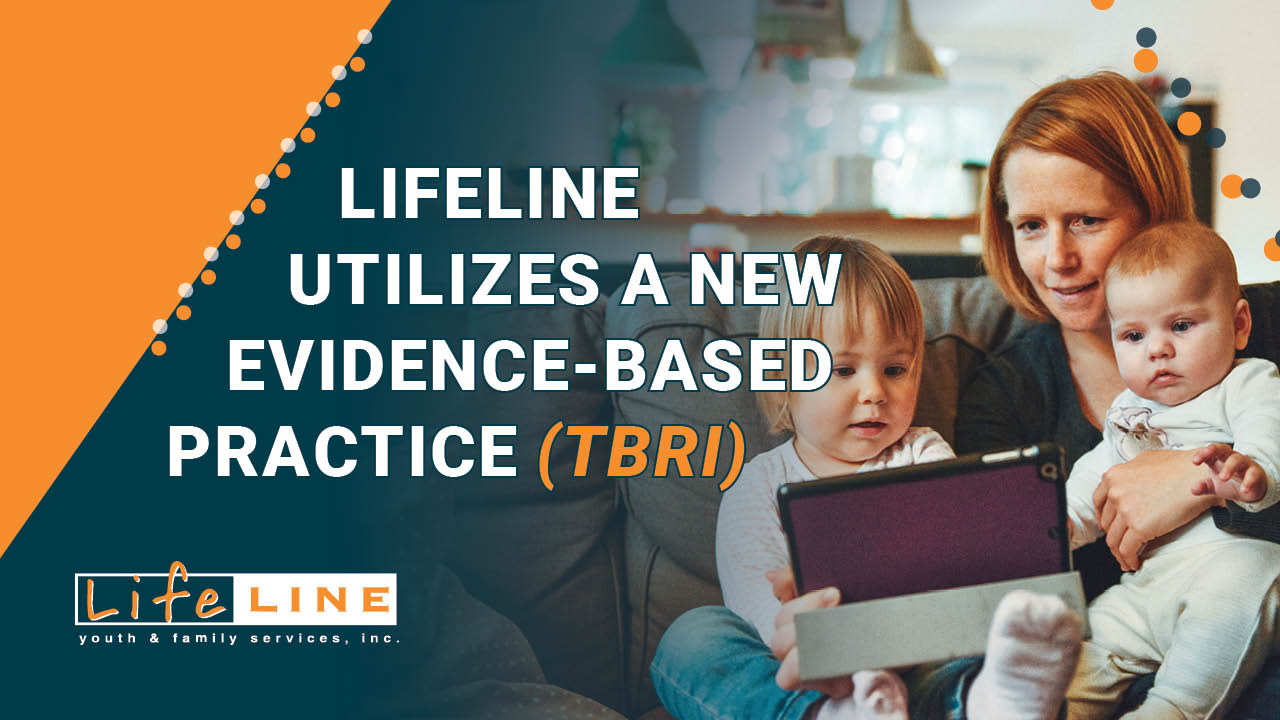LIFELINE IS PROUD TO INTRODUCE A NEW EVIDENCE-BASED PRACTICE TO OUR OFFERING – TBRI
 Lifeline is now qualified to offer Trust-Based Relational Intervention (TBRI) in all of our FPS cases! This Evidence-Based Practice (EBP) allows us to better serve families with children suffering from maltreatment, abuse, neglect, multiple home placements, and violence.
Lifeline is now qualified to offer Trust-Based Relational Intervention (TBRI) in all of our FPS cases! This Evidence-Based Practice (EBP) allows us to better serve families with children suffering from maltreatment, abuse, neglect, multiple home placements, and violence.
Through this practice, we work to help parents and caregivers understand trauma and learn about Empowering Principles (self-regulation, physical needs, daily rituals), Connecting Principals (build trust and meaningful relationships), and Correcting Principles (behavioral and social competence).
How does TBRI work?
The process of TBRI is focused on the parents or caregivers of children ages 0-17 who come from hard places. This EBP focuses on the following goals:
- Creating an environment of physical, social, and psychological safety
- Recognizing and meeting children’s psychological needs
- Enhancing caregivers’ mindfulness awareness and mindful caregiving
- Building and strengthening secure attachments between caregivers and children
- Building and strengthening resilience in caregivers in children
- Helping caregivers master proactive strategies for behavioral change
- Helping caregivers master the IDEAL Response
- Immediate
- Direct
- Efficient
- Active
- Leveled at behavior, not child
- Helping caregivers master Levels of Response (Playful, Structured, Calming, Protective)
What specific needs does TBRI address?
TBRI is designed to meet the goals listed above by addressing the following areas:
- Caregivers’ lack of mindfulness, and associated deficits (e.g., inability to remain calm and recognize children’s needs)
- Caregivers’ lack of awareness about their own caregiving history, and its impact on their own ability to provide care
- Caregivers who have children that experience the following:
- Inability to give and/or receive nurturing care
- Hyper-vigilance and lack of felt safety
- Inability to regulate their own emotions and/or behavior
- Problem behavior, including both internalizing and externalizing behaviors
- Sensory related deficits, including, for example, hypersensitivity and/or hypo-sensitivity to touch
- Poor social skills (e.g. does not know how to appropriately ask for their needs)
